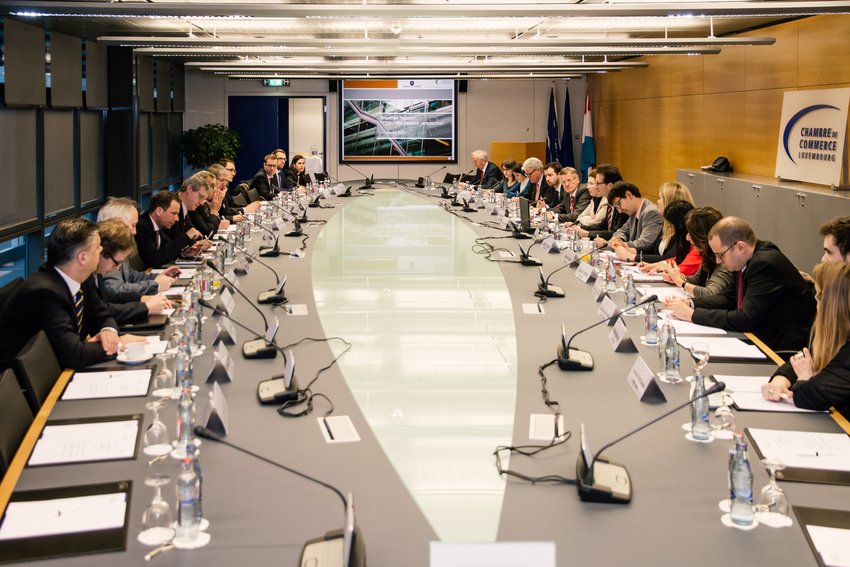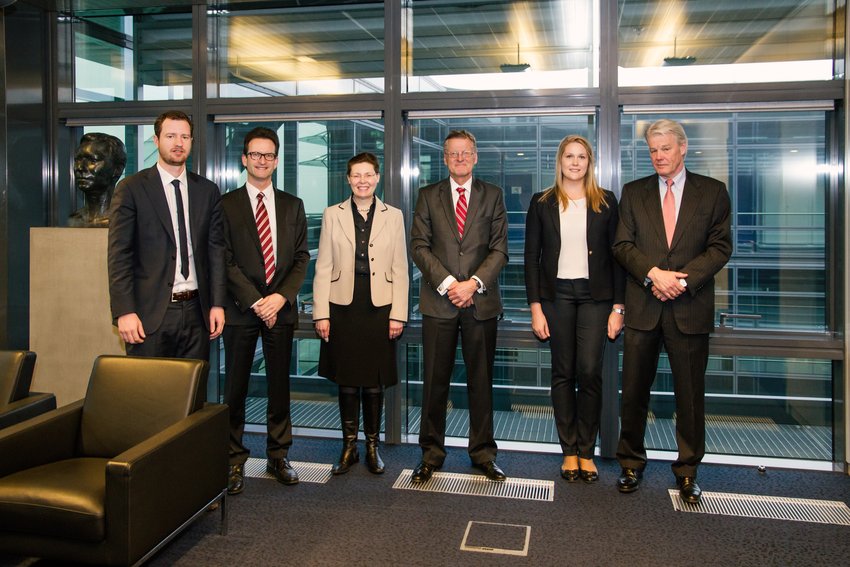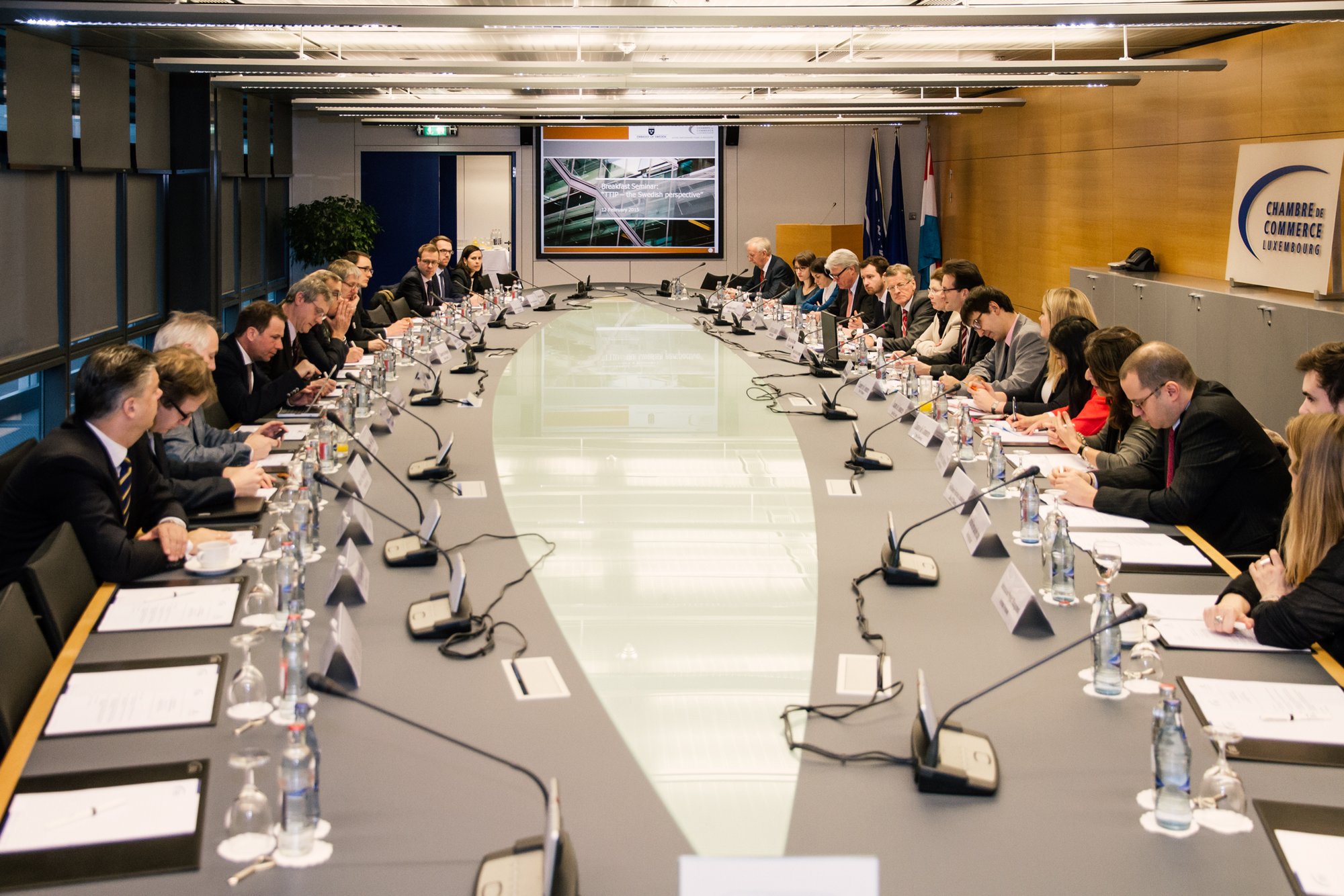
Breakfast seminar

On February 12th, the Luxembourg Chamber of Commerce and the Embassy of Sweden to Luxembourg organised a breakfast seminar about the world’s currently probably most discussed and most far-reaching partnership - the Transatlantic Trade and Investment Partnership (TTIP), highlighting the Swedish experience.
The seminar attracted numerous stakeholder, such as Luxembourg-based companies, various business federations, members of the Luxembourg Parliament, foreign Ambassadors as well as representatives from the Ministry of Foreign and European Affairs who were keen to learn more about the status quo of the current negotiations, in general, and the Swedish perspective, in particular, the latter being characterized by a broad consensus in favour of TTIP throughout the community, including trade unions and business representative bodies.
Carlo Thelen, General Director of the Chamber of Commerce, opened the seminar by highlighting the economic opportunities which TTIP can bring about for both the EU and the US in terms of future growth, boosting exports and job creation. Although the Chamber of Commerce is well aware that certain issues need to be addressed with great transparency and treated with caution, Mr. Thelen underlined the outreach activities which have been implemented by the Chamber of Commerce so far, one of them being the extensive report on TTIP in a recent edition of the Chamber’s business magazine Merkur (http://www.cc.lu/uploads/tx_userccmerkur/200420_MERKUR_07_08_2014_WEB.pdf).
Thelen also recognized the importance of TTIP as a political project to promote transatlantic ties, with the EU and the US being the world’s largest market economies. By agreeing on high standards, they can set the groundwork for a new model for international free trade which will certainly inspire the negotiators of future free trade agreements. If successful, TTIP can claim to set a global production and trading standard, whilst ensuring the EU and the US a first mover advantage.
Swedish Ambassador to Luxembourg Maria Christina Lundqvist pointed out that TTIP was launched in an economically challenging period of time. As the former Head of the Americas Department at the Swedish Ministry for Foreign Affairs, she emphasized the strategic importance of TTIP: according to her, the agreement represents a historically unique opportunity. She also noted that negotiations have now reached an important stage and highlighted Luxembourg’s crucial role in these negotiations during its upcoming EU Presidency.
Keynote speaker Jonas Hafström, Ambassador and Senior Adviser for Trade Promotion at the Swedish Ministry for Foreign Affairs and former Ambassador to Washington, elaborated on the position of Europe in the new world order. “The time is now!”, he emphasized. Hafström stressed that TTIP represents a once-in-a-lifetime opportunity to revive transatlantic ties and to enhance Europe’s economic competitiveness in a moment where the global balance is about to tip in favour of Asian economies with the potential conclusion of the Trans-Pacific Partnership between the USA and the Asia-Pacific. TTIP will not only favour an open market for goods, services and public procurement, enhanced regulatory cooperation, and a potentially safe source of energy for Europe, it should also be considered to be a key element of European and national security policy. Regarding the serious concerns that have been raised in Europe by civil society, businesses and labour unions, Hafström attached great importance to a transparent communication and stressed the importance of addressing public skepticism. Sweden’s public opinion is less skeptical, according to the Swedish diplomat. His home country has always had a positive attitude towards trade liberalization - a fact that is certainly due, amongst other factors, to the small size of the economy and its export-driven orientation, making Sweden comparable to Luxembourg. Another element explaining for the positive image of TTIP in Sweden: Close and constructive cooperation between labour and business. Labour union representation at company board level is for instance a common practice in Sweden. Labour unions are thus well aware of the economic issues the Swedish companies are facing and are aligned with the general Swedish opinion in favour of the conclusion of this agreement.
Dominic Boucsein from EUROCHAMBRES, the Association of European Chambers of Commerce and Industry, provided the audience with an update on the status quo of the current negotiations which will be entering a 9th round in April 2015 in the US. Boucsein focused on the need to make TTIP an SME friendly trade agreement, given that 99% of EU and US companies are indeed SMEs. He welcomed the fact that a dedicated “SME chapter” was specifically designed to meet their needs by contributing to limit their administrative burden, to facilitate customs and trade procedures and to provide better and readily available information on market access.
The seminar was concluded by an extensive Q&A session, with a broad consensus that further outreach activities and transparent communication will be of paramount importance to inform the business community, the NGOs, the labour unions and the civil society at large about the opportunities this partnership bears and to address their concerns.



